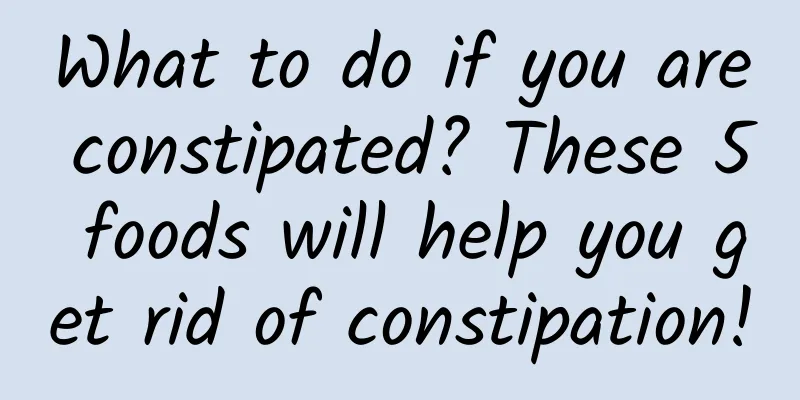What should I eat if I have severe postpartum hair loss?

|
It is normal for postpartum women to experience hair loss. This is a natural physiological phenomenon. However, there are many ways to alleviate and prevent it. After all, severe hair loss has a great impact on life, especially for postpartum women who have less hair. They should take good care of their hair, regulate their bodies, and ensure their health. So what should you eat if you have severe postpartum hair loss? Causes of postpartum hair loss Endocrine effect: Estrogen in the human body stimulates hair growth. During pregnancy, estrogen secretion increases, and after delivery, estrogen levels in the body drop significantly, causing hair to fall out naturally. Mental factors: The hard work of parenting and the increase in housework often make children feel uncomfortable at first and feel physically and mentally tired, which affects the body's metabolic function, causes poor blood circulation in the head, and leads to a shortage of nutrient supply to the hair. What to eat for postpartum hair loss Supplement iron: 30% of postpartum hair loss is caused by iron deficiency, so the problem of hair loss can be solved by eating more iron-containing foods. Common foods rich in iron include soybeans, black beans, eggs, hairtail, shrimp, cooked peanuts, spinach, carp, bananas, carrots, potatoes, etc. Supplement plant protein: In addition to iron deficiency causing hair loss, lack of nitrogen amino acid, cystine, etc. in the hair can also cause hair loss. Therefore, for patients with this type of hair loss, it is advisable to eat more foods containing methionine in their daily diet, such as soybeans, black sesame seeds, corn, etc. Eat more vegetables and fruits: If women consume excessive amounts of sugar and fat for a long time, it may also cause hair loss. Vegetables and fruits are alkaline foods. Eating more of them can neutralize acidic toxins. Iodine supplementation: Although some women do not experience hair loss, their hair is dull, dry, and lifeless. They can take an appropriate amount of iodine supplementation. Female friends may wish to eat more foods such as kelp, seaweed, oysters, etc., which not only can beautify hair, but also prevent hair loss. Supplement vitamin E: To prevent hair loss, vitamin E supplementation is essential. It has the effect of resisting hair aging and promoting the division of hair matrix cells. In addition, it can also promote hair growth, so you can eat more fresh lettuce, green cabbage, black sesame seeds, etc. Through the above introduction, everyone has a clear idea of what to eat when suffering from severe postpartum hair loss. A reasonable diet is still very important, especially during breastfeeding, you should pay more attention to the rationality of the diet and supplement more nutrition, which can not only improve your own health and alleviate hair loss, but also allow the baby to develop faster and better. |
<<: What should I eat if I have severe postpartum hair loss?
>>: What to eat for postpartum hair loss?
Recommend
What to do if you have a urinary tract infection during breastfeeding
The immunity of women who are breastfeeding is re...
Best time to sweat during a full moon
The best time to sweat during the full moon is 30...
Does eating leftover rice and vegetables cause cancer? Can we still eat them? One article explains
Author | Xue Qingxin, registered nutritionist, re...
What to do if you have diarrhea during pregnancy
Nowadays, with the improvement of people's qu...
Is it normal to have your period three days early?
Early and delayed menstruation are symptoms of ir...
Breast development in little girls
The growth process of a person is a process, and ...
If I had sex before the IUD was removed, can I still get it removed?
Women cannot have sex before having the IUD remov...
Can pregnant women eat beef liver?
Pregnant women should try to avoid eating too muc...
What is the weather and temperature in Sanya in July? What kind of clothes should I wear in Sanya in July?
Sanya is the original habitat of tropical rainfor...
How long will it take to give birth if there is bleeding in late pregnancy?
Women who have given birth know that if you see b...
What is the cause of bleeding during intercourse after childbirth?
The relationship between husband and wife needs t...
See if you should get a physical exam for this project.
Osteoporosis is a disease that makes our bones po...
Pregnancy after three months of fetal arrest
If a pregnant woman's baby shows signs of fet...
Menstrual period is just beginning and the color is dark brown
The color of the menstrual period is brown-black ...
Thunderstorms are actually asthma "triggers" - revealing the secrets of thunderstorm asthma
Author: Jia Dayi Inner Mongolia Autonomous Region...









